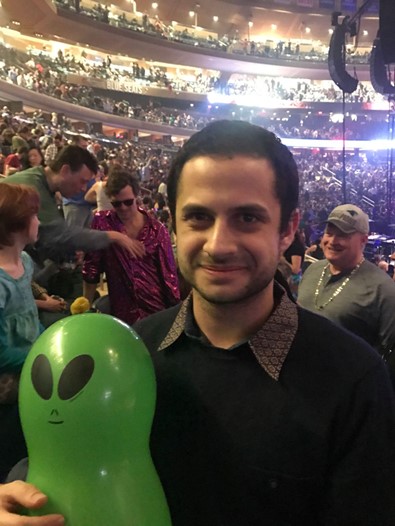BLOG POSTS WHERE MONTH IS 12, AND DAY IS 12, AND YEAR IS 2022
HOW IS PHISH THERAPEUTIC? WITH ISAAC SLONE
[The following post is an interview with Isaac Slone (phish.net user @isaacslone) about his article, “How is Phish Therapeutic?.” The interview is part of an AMA series celebrating the publication of the “Phish and Philosophy” special issue of the Public Philosophy Journal, edited by Stephanie Jenkins and Charlie Dirksen. Isaac will also be answering your questions in the comments throughout the week. The next post will feature Jason Del Gandio, so please submit your questions now. -Stephanie]
Tell us about yourself. Who are you? When was your first show? Why do you come back?
Thanks for asking! I am a practicing psychotherapist in New York City - working on my license to practice psychoanalysis. My life intertwines with Phish in so many ways, it’s somewhat unbelievable. My first show was 6/2/09 - the summer before I started high school. It was so exciting that the band was reuniting - I remember it felt like something to live for. I come back because of the music. I think the band is phenomenal, and their live show is unparalleled.
Why did you decide to write this essay? What do you want your readers to take away from it?
I decided to write this essay because of how often I hear Phish fans talk about the joy they experience at shows. People within the Phish community commonly accepted the notion that Phish has a therapeutic value, but there was more for me to articulate about how exactly that works. There is a long tradition of psychology/psychotherapy extending out in conversation with other disciplines, and I wanted to begin building that bridge with Phish. I hope that it opens a deeper discussion or reflection for the reader because my experience is only one of many, and there’s only so much I can say about it in the short space of the essay. There are numerous ways to describe how what Phish does is therapeutic - I hope my piece sheds light on that and pushes the conversation further.


 The Mockingbird Foundation
The Mockingbird Foundation